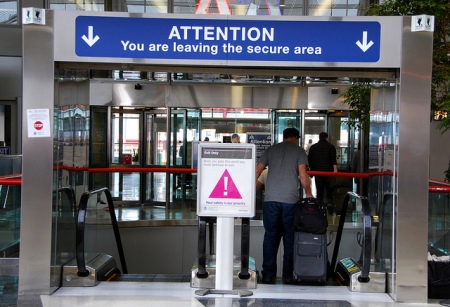In September 2014, National Center for Transgender Equality (NCTE) was one of three stakeholder organizations to receive a Transportation Security Administration (TSA) “Community Partner” award. NCTE Director of Policy Harper Jean Tobin accepted the award on behalf of NCTE for our education and training of TSA personnel on transgender rights and concerns, and to press for less invasive approaches to airport security.
While TSA will not share details of their “standard operating procedures,” it is clear that NCTE’s advocacy has resulted in some refinements over the years. These changes, along with the move away from officers viewing individual body scans to an automated system where officers view only a generic “Gumby” outline , mean we hear fewer stories of bad TSA experiences each month than in the past. As TSA has rolled out its Passenger Support Specialist (PSS) program, NCTE has directly worked with TSA to present transgender online trainings to several hundred PSS officers.

NCTE Director of Policy Harper Jean Tobin accepts the Transportation Security Administration’s “Community Partner” award.
Unfortunately, less than one week after receiving the award from Administrator Pistole, NCTE heard from our longtime supporter and trans advocate Gunner Scott about a bad TSA experience at JFK airport. Contrary to the procedures TSA established with NCTE’s input, Scott was asked to take off his shirt by TSA personnel after a body scanner read his binder (in this case, an item identical to a sports bra) as an “anomaly.” Like many trans men, Scott runs into binder “anomalies” frequently and this was the second time in two years he’d been asked to remove his shirt.



 Posted by transgenderequality
Posted by transgenderequality 